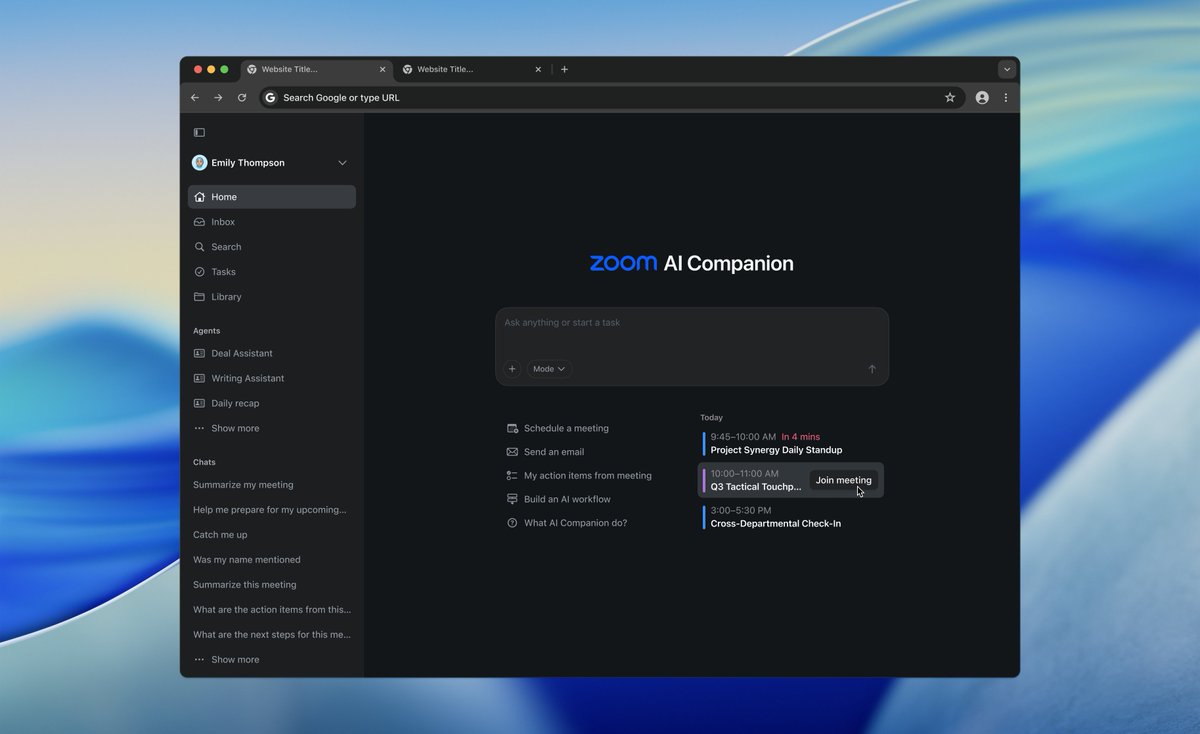
Peng Zheng
@pengzheng_
Designing AI @Zoom | Become the change you want to see in the world
When an AI convo stretches across a thousand turns, jumping back and forth becomes a pain. Just prototyped this mini-map navigator idea in Cursor — lets you select turns and share context in a snap. Feels like a game changer.
The “AI‑native tools” dilemma: The closer you stay to tradition, the easier users migrate — but the easier you get killed by big players adding AI. The further you deviate, the higher the learning cost — and the harder it is to win beyond early adopters.
Any good reads on building trust and a sense of assurance when delegating tasks to AI agents?
In product design, applying first principles means letting go of existing solutions and competitors, and instead reasoning from the ground up—starting with root problems, technical constraints, and business strategy. Building a basic calculator on the iPad is easy; crafting a…
Jonathan Blow’s game design philosophy has much to teach software design — “Setting the system in motion and seeing what comes out rather than manufacturing the results.” When introducing a new layer in the system, offer less hand-holding and more room for natural thinking and…
designing in layers the best software doesn’t overwhelm you on day one or abandon you when you get sophisticated. it grows with you through carefully designed “layers” that reveal themselves exactly when you need them. think of it like learning to drive. you start with…
This is insane
Introducing MirageLSD: The First Live-Stream Diffusion (LSD) AI Model Input any video stream, from a camera or video chat to a computer screen or game, and transform it into any world you desire, in real-time (<40ms latency). Here’s how it works (w/ demo you can use!):
Replicated a Zoom desktop client homepage with Cursor — draggable & resizable window, responsive panels, interactive components. From idea to something that feels real has never been this easy. Time to ditch Figma.
A potential new interaction pattern: let AI begin generating based on whatever context is available, while the user refines the prompt along the way—instead of crafting a long prompt upfront and waiting for results. Perceptually, it feels faster and more proactive.
I'm building a notes app that builds itself now everyone gets their dream notes app will open source soon
Any ‘You Might Like’ feature that isn’t based on either a clear user intent or a high-probability inference from context is just a product manager’s wishful thinking and UI clutter.
Every app rebuilds its own Save, Friends, DM, Like, Share—just to keep you in their walled garden. AI agents hint at something freer: messy, open, like the real world. Not theme parks that trick you into staying.
No one holds their phone perfectly straight when half awake in the morning. If it's already this big, why not turn it into muscle memory? 👆 Tap top edge = Snooze 👇 Tap bottom edge = Stop You don’t even need to open your eyes.

greatness lies in contradictions: real magic happens in the tension between opposites, not in choosing sides most people think paradoxes need to be resolved, but the masters live in that sweet spot where contradictions dance together. like how the best tools feel dead simple on…
